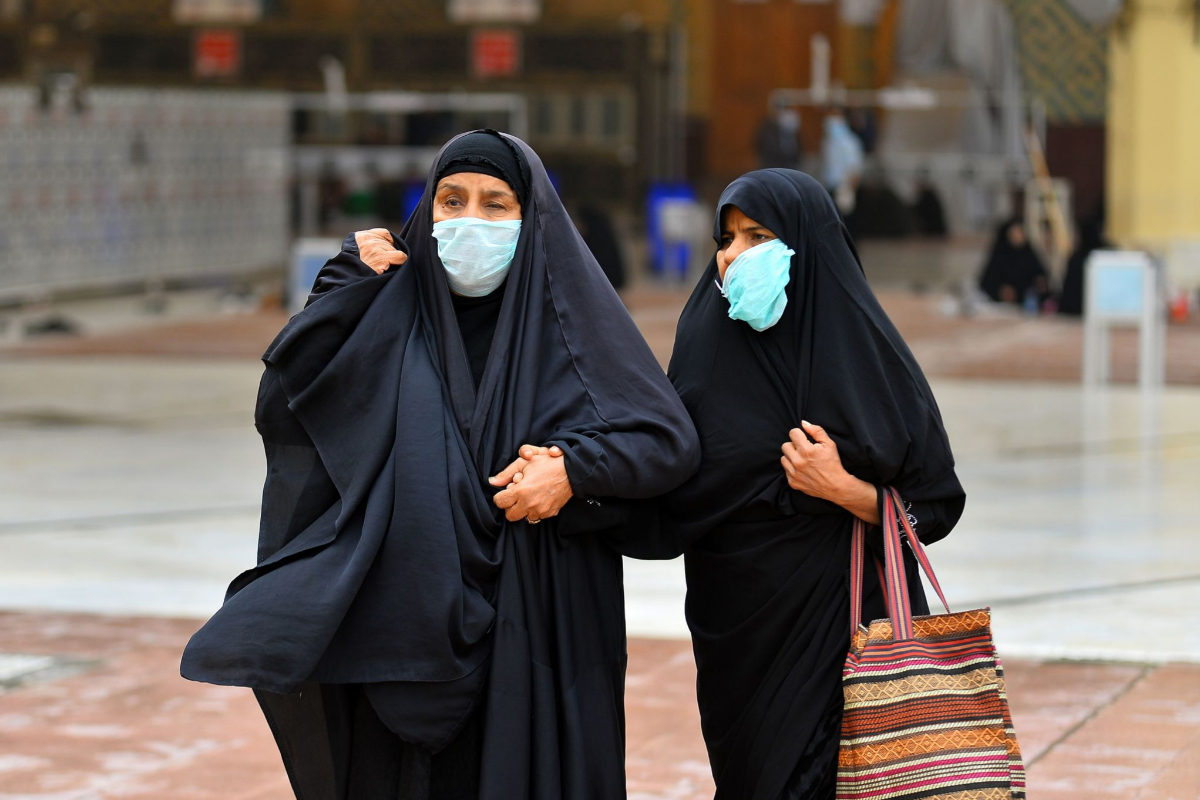- Middle East: Iran will fight against the coronavirus and distrust
- Iraj Harirchi.The Iranian Vice Minister of Health is infected with coronavirus
A cleric named Ruhola Khomeini delivered in 1963 an inflamed sermon against the Sha from Qom, which eventually became the epicenter of the revolution that dethroned the Pahlevi. Fifty-seven years later, this pious city of provinces and crucial Shiite religious center, two hours from Tehran, is the focus of the largest outbreak of coronavirus outside of China. Covid-19 is spreading rapidly from its majestic domes to the outside, following the path of the pilgrims.
The disease has already reached the high spheres of the Iranian Islamic Republic. The Deputy Minister of Health, Iraj Harirchi, confirmed this Tuesday at noon his contagion in a domestic video, shared on social networks. "I didn't feel well last night, so I did the tests. Both the first and the second were positive," he said laughingly. "I'm fine," he said optimistically. "Do not be afraid, the Government will defeat the coronavirus under the leadership of Health Minister Said Namaki!"
The reality is that, by then, many compatriots had already realized what happened in the hours before the video: Harirchi appearing before the press, next to the government spokesman, sweating nonstop; Harirchi on television, sniffing his nose and coughing in front of the interviewer, joking about how he hadn't covered his mouth one of the times. Calling the population to calm, but achieving everything but calm theirs, who fear that the number of affected will be much greater than the official.
The Ministry of Health has confirmed 16 dead and about a hundred positives. A 56% increase in the number of infected in the 24 hours until then. The rapid increase unleashed the suspicion that had been forming since the previous day, when a deputy for Qom said that in his constituency there had been at least fifty deaths, that there were 250 patients in quarantine and that the outbreak had begun two weeks before the first official announcement
"The government has not taken the crown of Qom seriously," the parliamentarian said. His words, denied by the authorities, echoed in others by Mohammad Reza Qadir, dean of the University of Medical Sciences of Qom, describing the situation of "severe" and suggesting that the Ministry of Health had ordered not to publish all related figures with the coronavirus. Qadir is currently in quarantine, as is another deputy, the reformist Mahmud Sadeghi.
"In my opinion, the infection had been present in Qom for at least three weeks. When the outbreak began in China, Iran continued with its air connections, even though almost all the airlines had canceled their flights. This is the reason why enter Iran, "says an Iranian doctor who asks not to reveal his identity. "The fact of not quarantining the city right from the moment of the announcement of the Covid-19 outbreak became another problem, allowing its expansion to and from Iran."
According to Health, most deaths and infections outside of Qom are due to people who had visited the sacred city. Bahrain, Kuwait, Oman, United Arab Emirates, Iraq, Afghanistan and Lebanon have warned of the detection of cases of coronavirus in patients returning from Iran. In some cases the victims came from Qom, one of the most important Shiite schools. That is, visited annually by tens of thousands of religious from around the globe.
Although most collective prayers have been suspended for at least ten days, the powerful clergy of Qom has refused to lock the temples. Images of this Tuesday showed the pilots disinfecting the venerated Masumé mausoleum while, around, faithful without any protection continued to make the mandatory prayers and kisses to the ornaments of the structure that houses the tomb. In other places fences have been put in place to prevent pilgrims from approaching the gate.
In the eyes of many Iranians, such a chain of events has once again called into question the credibility of the authorities, undermined after being accused in January of trying to cover up the demolition of the Ukrainian plane. Among allegations of incompetence or manipulation, the Iranian Government was striving Tuesday to show transparency by sending text messages to the Iranians, calling them to calm down and relativizing the lethality of the virus, and recommending the population to avoid going outside.
"The enemy wants to unleash the panic to bring the country to closure," Iranian President Rohani said on Tuesday. "Work and activity must persist, as in the past, but agglomerations should be avoided," added the head of an executive in trouble. The Iranian economy, heavily hit by US sanctions - which has a special impact on the health sector - was just beginning to recover. More than faith, the coronavirus seems to be testing the resilience of a nation.
According to the criteria of The Trust Project
Know more- Iran
- Coronavirus
- Science and Health
Science and healthIran fight against the coronavirus and distrust
COVID-19 70 more cases of coronavirus detected in the quarantine cruise in Japan
Epidemic France confirms the first death from coronavirus in Europe

